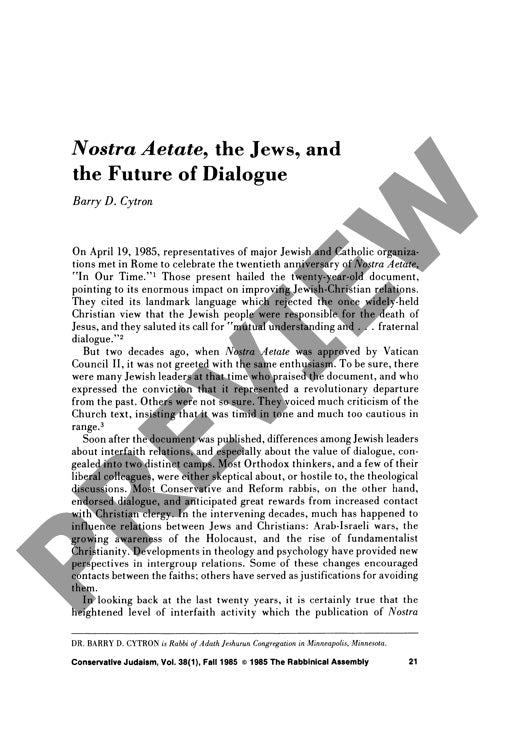Nostra Aetate the Jews and the Future Of
Couldn't load pickup availability
The Vatican II declaration Nostra Aetate in 1965 promised to revolutionize Jewish-Christian relations, yet twenty years later, its transformative potential remained largely unrealized in American Jewish religious institutions. Deep denominational divisions emerged as Jewish leaders grappled with the Vatican's call for interfaith dialogue. Orthodox authorities, led by Joseph B. Soloveitchik and Eliezer Berkovits, mounted theological and historical arguments against engagement, while Conservative and Reform leaders embraced interfaith opportunities despite challenges like the Six-Day War. Through systematic analysis of rabbinical literature, theological writings, and organizational positions from 1965-1985, clear ideological patterns emerge: Orthodox opposition stemmed from theological isolation and post-Holocaust skepticism, while liberal Jewish support emphasized mutual learning, shared secular challenges, and spiritual growth through interfaith encounter. The research integrates James Fowler's developmental psychology work on faith stages, revealing alignment between theological advocacy for dialogue and theories of religious maturity. Despite initial enthusiasm, sustained interfaith programming failed to take root in American synagogues, highlighting an ongoing challenge: finding religiously knowledgeable participants willing to engage in transformative dialogue.

More Information
-
Physical Description
-
Publication Information
Published 1985
ISBN
-
Publication Credits
Barry Cytron

